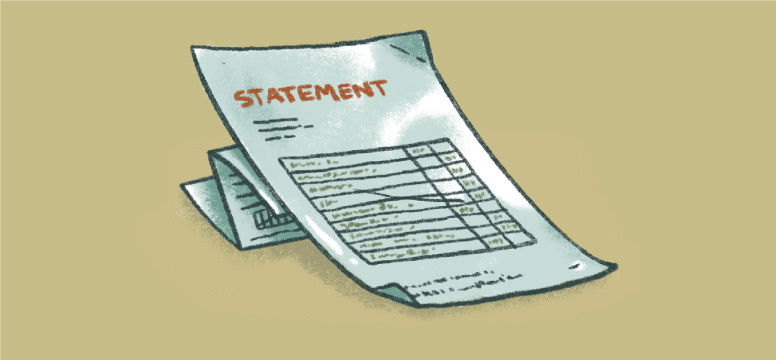Credit Card Payoff Calculator
Credit cards with a low interest rate are hard to find. In fact, the average APR (Annual Percentage Rate) sits at around fifteen percent—that’s pretty high. You can look at this number and either roll your eyes & shrug your shoulders or work to ensure your creditors never get that much out of you. The Credit Card Payoff Calculator shows you how much interest you’ll have paid by the end of your payoff date. Use that information to give your debt a complete overhaul and start paying a monthly rate that helps you save on interest charges.
Here’s how:
- Enter your credit card’s balance & interest rate.
- Adjust the Monthly Payment to see how paying more can save you money in the long-run.
The time it takes to pay off your credit card depends on things like balance and APR/interest rates.
Balance: The credit card balance (the amount of money you’ve spent on your credit card) affects how much umph is needed to pay that card off. It’s true your interest rate remains the same, but while your card balance increases as does your monthly interest charge. Learn more about credit cards by reading this article: Credit Cards.
APR/Interest Rates: APRs (annual percentage rates) and interest rates differ slightly in purpose, but each takes a chunk out of the money you put toward paying off debt. Meaning, every time you make a payment, only some of it goes toward the owed balance—the rest goes toward interest. This forces people to make extra monthly payments so that more of their money will go toward actual debt. Read this article to learn more on the subject of interest. Also, the key to a low interest rate is a good credit score; learn more here: Credit Scores.
Pay more than the total minimum required each month with amortization. Amortization is the process of making regular principal and interest payments to eliminate debt. A lot of people like to use something called an amortization schedule—a table that details how much of your monthly payments go toward paying off a fixed interest. An amortization schedule helps its users see how to avoid paying a ton in interest.
For most, paying more than minimum isn’t just a strategy, it's a necessity. Let’s say your credit card has a balance of $2,000 at an interest rate of 14%, the total you’ll be paying (extra) for interest is $185 for a 15 month payoff period—roughly $12.30 is added for interest each month. In this case, if your monthly minimum payment is $35, just over half of your payment is going toward paying down your balance. That’s no way to tackle debt. Instead, hit it with all you’ve got. Using the snowball or avalanche methods can help pay down debt quickly. Learn more with this article: How to Manage Your Debt.
Different banks and credit card companies let you negotiate a lower interest rate. Start with the credit cards you’ve had the longest—particularly the cards you’ve never missed a minimum payment on. And, remember to only ask about it when you’ve had a recent increased credit score or change in unemployment/employment status.
Personal Bankruptcy
Filing for bankruptcy is a last resort solution for overwhelming debt. This is where the court looks at all your assets to see which ones can be used to pay off any outstanding debt. You can check out this article on personal bankruptcy to learn more.
Balance Transfer
If the interest rate is weighing you down, it’s time to request a transfer from your high APR account to the 0% offer and embrace the weightless wonder of no interest charges.
Negotiating a Lower Payoff
Debt settlement is when you and your creditor negotiate a lower payoff than what you currently owe. This method can be applied two different ways.
DIY debt settlement—just you and your creditor negotiate any changes to the amount you owe. However, you can expect a creditor to accept a DIY settlement only if you’re so backed up on payments that your credit’s already taken a hit.
Professional debt settlement—an agency negotiates changes for you. Working with a settlement agency is risky business—your credit seldom comes out unscathed, you're up to your nose in agency fees, and it’s not likely you’ll win the settlement.
Whatever debt elimination route you decide to go with, just remember to be careful, do your research, make a plan, and stick to it.
Neither Banzai nor its sponsoring partners make any warranties or representations as to the accuracy, applicability, completeness, or suitability for any particular purpose of the information contained herein. Banzai and its sponsoring partners expressly disclaim any liability arising from the use or misuse of these materials and, by visiting this site, you agree to release Banzai and its sponsoring partners from any such liability. Do not rely upon the information provided in this content when making decisions regarding financial or legal matters without first consulting with a qualified, licensed professional.


